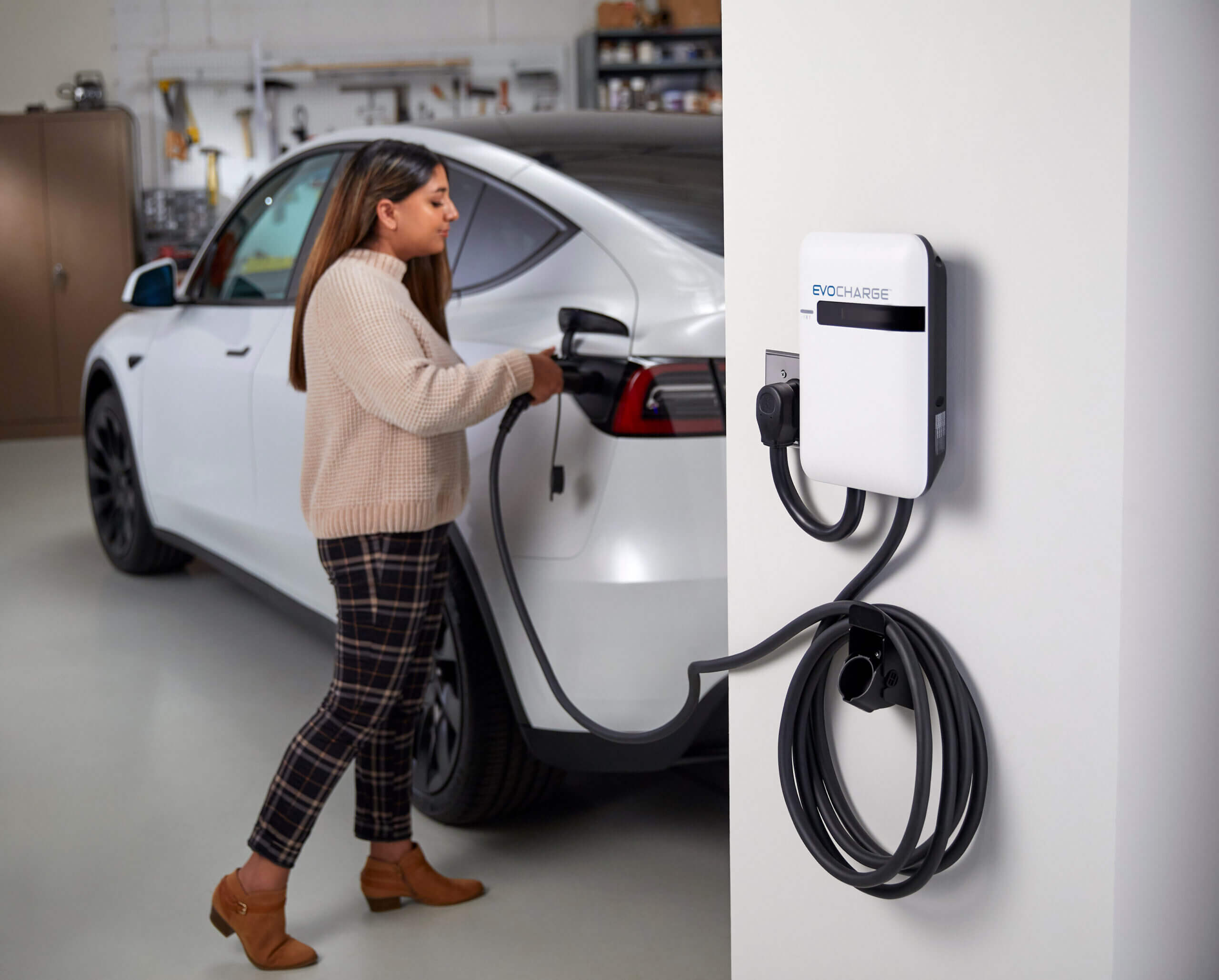When it comes to deciding which is the best home EV charging station for your family, having options can feel a little overwhelming. Do I have the correct electrical connection? How much faster will a Level 2 charging station be vs. Level 1? What do I need if I want to connect it to my electrical utility company? Can I connect it to my home WiFi? Can I control it through an app? Here are a few things you should consider when you’re choosing the best Level 2 EV charging station for your home.
EVSE vs. iEVSE
When it comes to speed and reliability, both the EvoCharge EVSE and iEVSE Home models are great for EV owners looking to charge their vehicles faster at home. The differences lie in connectivity and network availability.
A quick comparison between the two:
[table id=1 /]
Hardwire vs. Plug-In
Both our EVSE and iEVSE units are capable of being hardwired into your home’s electrical or plugged into a standard 240v plug (current building codes typically require the addition of a 240v plug). Although both units come with a plug installed, it can be easily removed for hardwiring. If you choose to hardwire your charging station, we highly recommend hiring a professional electrician.
Do I Need OCPP?
OCPP, or Open Charge Point Protocol, is a global standard by the Open Charge Alliance; it provides you with the ability to choose your network provider the same as you’d choose what cell phone carrier, internet provider or streaming services you want to use. With a true OCPP system, you won’t be locked into using one specific network, and the unit will still work even if the network provider you’ve been using goes out of business or you choose to go with a different network.
There are two choices for EvoCharge’s home EVSE systems: the EVSE, which does not have OCPP because it is non-networked, and the iEVSE, which utilizes OCPP. If you’re looking for a system that will plug in easily and charge your vehicle immediately, the non-networked EVSE would work well, but for homeowners who want the best home EV charger for maintaining more control over their system, prefer network options and would like to connect it to their local utility for potential financial incentives should choose the iEVSE.
Do I Need Connectivity to Utility Network?
Connecting your iEVSE to the local utility network can provide long-term financial benefits and incentives if offered by your municipality. We recommend talking to your utility company to determine whether you’d like to take advantage of any programs they offer; if you’d like to, you’ll want to go with our networked iEVSE unit. Remember: with the increase of EVs on the market, more utility companies are offering programs or plan to in the near future, so even if your utility doesn’t have options currently, you may want to consider an iEVSE so you can connect when it becomes available.
Do I Need a Wi-Fi Enabled Station?
Like OCPP, it depends on whether you want more control and potential savings by connecting your system to your local utility. iEVSE automatically comes with Wi-Fi connectivity for ease of use and allows you to monitor your usage.



